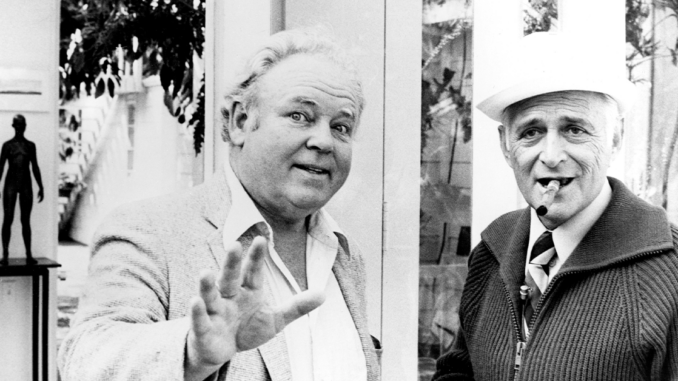
“I think most people are nostalgic for something they’ve never known.”
Let the record show that we are always eager to hear Norman Lear’s insights on just about anything. The man has created some of our favorite television shows, and we’d probably even follow a cake recipe if he suggested it.
As a veteran of sitcoms, Lear often spoke within his expertise: television. Drawing from his extensive industry experience, he shared his thoughts with the New York Times on the key differences between the 1970s and the 1980s.
“The world has turned 180 degrees in the last six years,” Lear remarked. “1984 feels like a foreign country.”
He also noted that public values had shifted, suggesting that television should mirror these changing priorities.
“The seventies were a decade of issues, conflict, and confrontation. I believe the theme of the 80s is the desire and need for belonging.”
While creating All in the Family, Lear held up a mirror to America, showcasing families that viewers recognized but had rarely seen depicted on screen. The Bunker family argued, laughed, and dealt with everyday life like any typical American family, offering audiences a refreshing sense of representation.
However, by the 1980s, Lear seemed to lean more towards wish fulfillment, focusing on what audiences desired to see rather than reality, including his own. “I feel people want to be part of a big family again,” he said.
“I trust my gut instinct. I think most people are nostalgic for something they’ve never known. Airplanes and telephones were supposed to shrink the world, but they’ve actually made it larger. When travel took four days, you stayed a week. Now, we pop in and out of each other’s lives for just a few hours.”